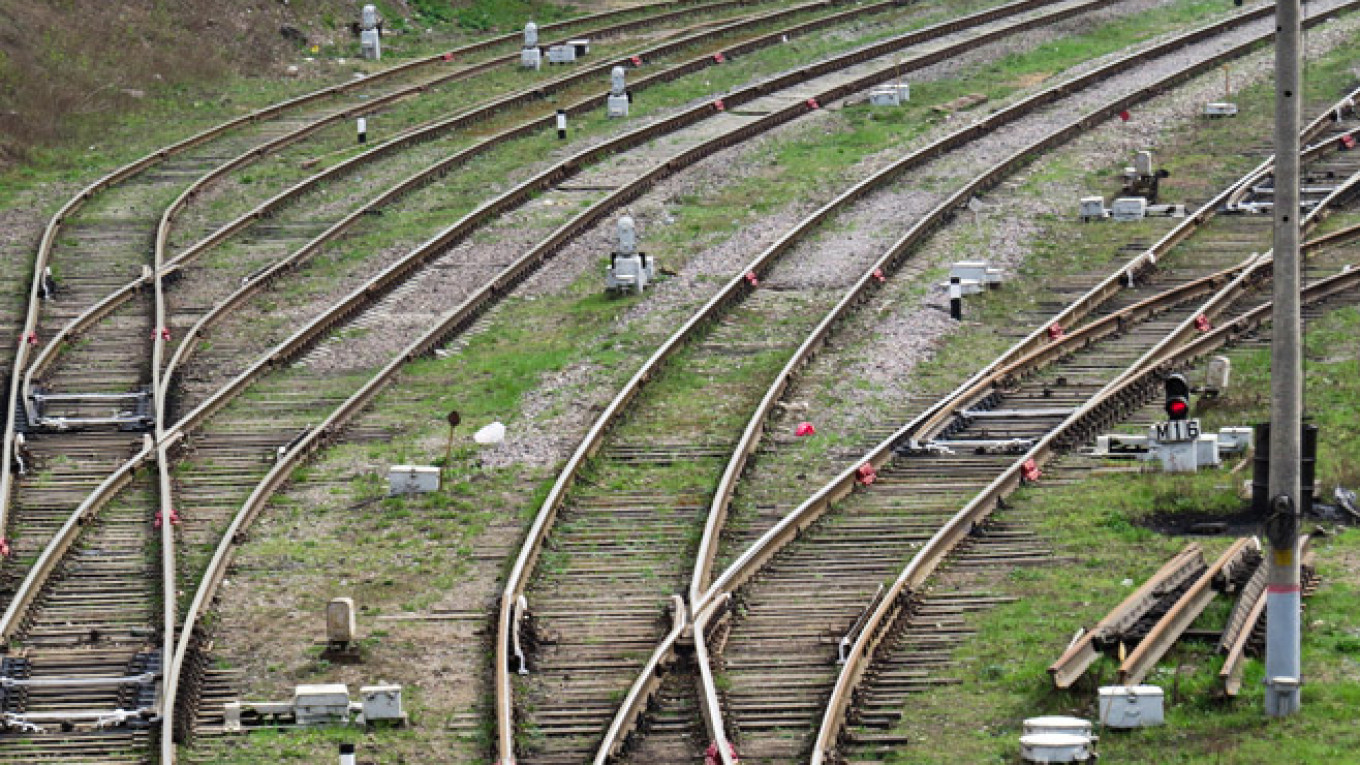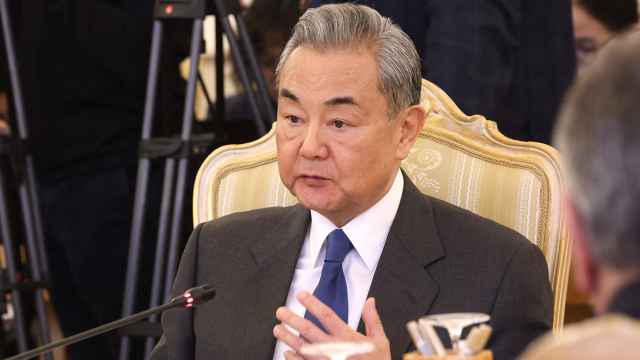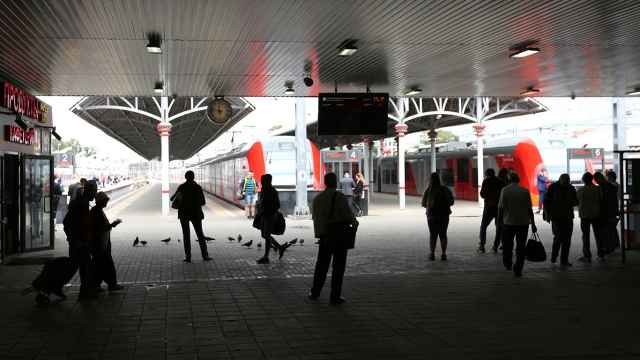Russia announced plans on Sunday to finance new railway tracks that bypass Ukraine, whose government accuses Moscow of supporting separatists in a conflict that has killed some 3,000 people.
The railway project was listed in budget plans for spending in 2015.
Finance Minister Anton Siluanov announced the budget plans, saying that infrastructure spending including the railway project would total 500 billion rubles ($13 billion). He gave no details of the project.
He raised Russia's budget deficit projections until 2017, attributing the change to lower price forecasts for its oil exports, and warned the government would not add new revenues to its 'rainy-day' reserve fund this year.
Russia, under successive rounds of U.S. and EU sanctions for its role in eastern Ukraine, is facing higher spending pressure after pledging to support companies affected by the Western measures. It denies accusations of sending troops and tanks into eastern Ukraine in support of the separatists.
Siluanov told journalists the government would maintain its 2015 borrowing program and would not dip into the rainy-day fund unless the price of oil dropped sharply.
He said Russia's 2015 budget deficit was expected to be 0.5 percent of gross domestic product — higher than a previously expected 0.4 percent — while budget deficits for 2016 and 2017 are expected to reach about 0.6 percent of GDP.
He said previous expectations were based on an expected oil barrel price of $96.
"[The oil price] has been clarified and because of that the deficit has risen. It was 0.4 percent of GDP and is now 0.5 percent," he said, speaking to journalists.
The Economic Development Ministry also raised its expectations for 2015 growth to 1.2 percent from a previous 1 percent forecast, Interfax reported.
Oil prices have fallen recently on demand worries and Russia's Urals has fallen to $94.50 per barrel.
Economic Development Minister Alexei Ulyukayev said Russia may divert funds from its separate National Wealth Fund or from pensions.
Russia relies on oil and gas for about two-thirds of exports and half of federal budget revenues. Over the course of a year, each $1 fall in the oil price wipes around $1.4 billion off federal tax revenues.
Last week, President Vladimir Putin said Russia cannot spend more of the $83 billion parked in its National Wealth Fund after the government raised the cap on how much of the fund can be used for domestic investments.
A Message from The Moscow Times:
Dear readers,
We are facing unprecedented challenges. Russia's Prosecutor General's Office has designated The Moscow Times as an "undesirable" organization, criminalizing our work and putting our staff at risk of prosecution. This follows our earlier unjust labeling as a "foreign agent."
These actions are direct attempts to silence independent journalism in Russia. The authorities claim our work "discredits the decisions of the Russian leadership." We see things differently: we strive to provide accurate, unbiased reporting on Russia.
We, the journalists of The Moscow Times, refuse to be silenced. But to continue our work, we need your help.
Your support, no matter how small, makes a world of difference. If you can, please support us monthly starting from just $2. It's quick to set up, and every contribution makes a significant impact.
By supporting The Moscow Times, you're defending open, independent journalism in the face of repression. Thank you for standing with us.
Remind me later.






